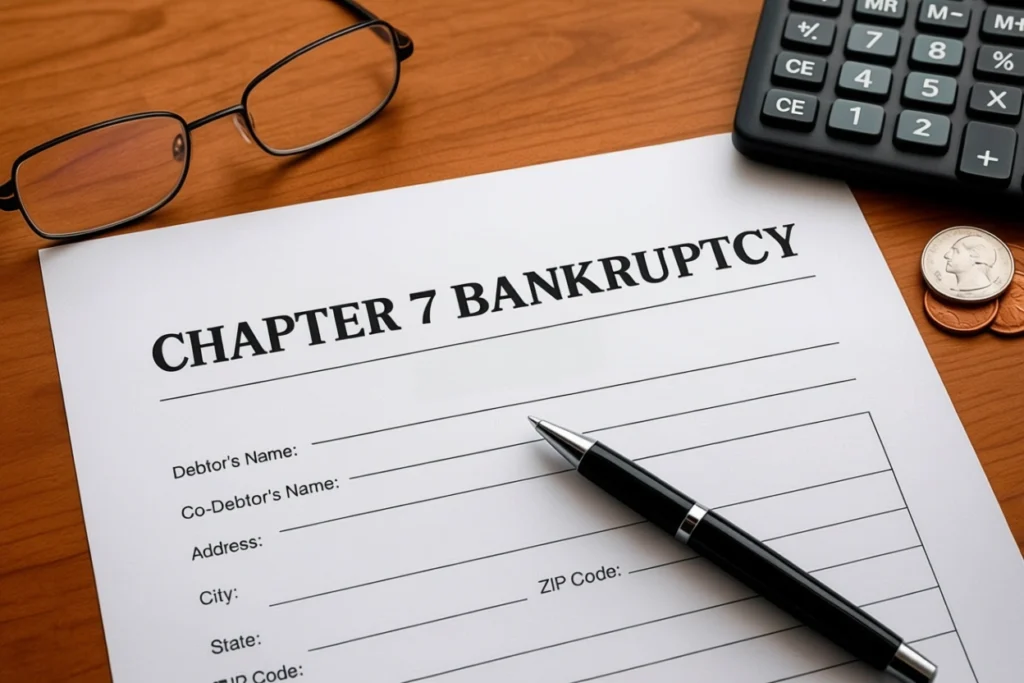Chapter 7 can give you a fresh start by wiping out qualifying unsecured debts and stopping most collection activity once your case is filed. I help you decide if Chapter 7 fits your goals and guide you from consultation to discharge.
Chapter 7 is a liquidation process under the Bankruptcy Code. A court-appointed trustee reviews your case, and exemptions may allow you to keep essential property. Many clients finish their case without losing assets because the property is protected by law.
• You pass the means test or otherwise qualify based on income and allowed expenses.
• Your debt is primarily consumer debt that has become unmanageable.
• You have not received a recent Chapter 7 discharge within the required time frame.
Eligibility is fact specific. I will review your income, assets, and goals during a free consultation.

Commonly discharged debts include credit cards, medical bills, personal loans, and certain deficiency balances after repossession or foreclosure. Some debts are not dischargeable by law.
Texas and federal exemptions may protect equity in a homestead and personal property within statutory limits. We will explain which set of exemptions best fits your situation.
A bankruptcy discharge typically occurs 3 to 4 months after an individual or joint debtor’s Chapter 7 case is filed. A discharge means the legal obligation to pay the discharged debts is eliminated. Creditors cannot legally require payment on debts that have been discharged.
Common examples include credit cards, medical bills, personal or unsecured loans, payday loans, collection accounts, overdrafts, and certain deficiency balances after repossession or sale of a car, truck, or home. Some debts are not dischargeable by law.
Texas or federal exemptions may protect equity in your homestead and personal property within statutory limits. We will help you choose the exemptions that best fit your situation.
Most straightforward cases take about 3 to 4 months from filing to discharge. Timing can vary based on your case and the court’s schedule.
The legal obligation to pay discharged debts is eliminated. Creditors covered by the discharge cannot legally require payment on those debts.
We explain Chapter 7 vs Chapter 13, provide a document checklist, plan exemptions to protect property where possible, file your case, prepare you for the trustee meeting, and share tips for rebuilding credit after discharge.
Call (903) 439-5150 or request a consultation. The initial consultation is free.
This page is informational and not legal advice.